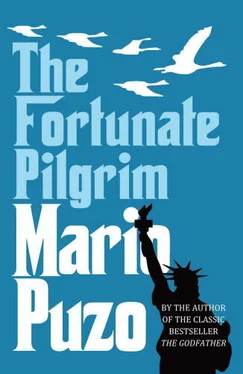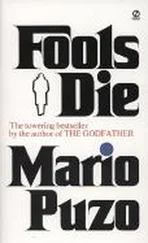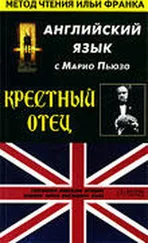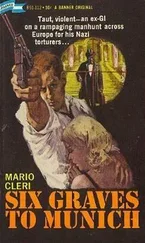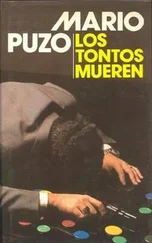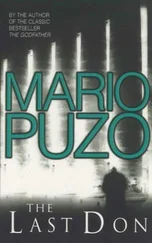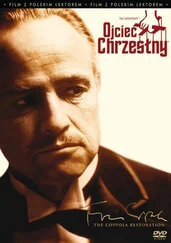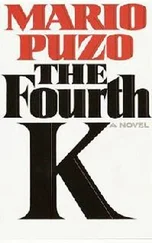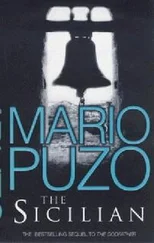The stillness was frightening; as if the house were deserted. Lucia Santa went weak with fear. Then, inside the house, her baby began to wail, and she was ashamed of her terrible, ridiculous suspicion. Patience. The baby’s wailing turned to shrieks of terror. Her mind went blank. She pushed against the door and went into the hallway and up the stairs, tracing those shrieks to a bedroom.
How pretty the room was; the prettiest room Vincenzo would ever have. It was all in blue, with blue curtains, a blue crib, a white stuffed toy horse standing on a little blue bureau. And in that beautiful room her son lay in his own piss. No one to change him, no one to quiet his shrieks of terror.
Lucia Santa took him in her arms. When she felt the lump of flesh warm and soaked in its own urine, when she saw the wrinkled rose face and the jet-black infant hair, she was filled with a savage, exultant joy, a knowledge that only her death could loosen this child from her. She stared around the pretty room with the dumb anger of an animal, noting all its assurances of permanency. Then she opened a bureau drawer and found some clothing to dress the baby. As she did so, Filomena came bursting into the room.
Then, then what a drama was played. Lucia Santa accused the other of heartlessness. To leave an infant alone! Filomena protested. She had only gone to help her husband open the grocery store. She had been gone fifteen minutes—no, ten. What a terrible, unlucky chance. But had not Lucia Santa herself sometimes left her infant alone? Poor people could not be as careful as they wished (how Lucia Santa sneered when Filomena included herself among the poor); their babies must be left to cry.
The mother was blind to reason, blind with an agonizing, hopeless rage, and could not say what she felt. When her child was left crying at home, it was flesh and blood of its own that came to the rescue. But what could a baby think if left alone and only a strange face appeared? But Lucia Santa said simply, “No, it’s easy to see that since this is not your own blood you don’t care to put yourself out. Go help in the store. I will bring my baby home.”
Filomena lost her temper. Shrew that she was, she shouted, “What of our bargain, then? How would I appear to my friends, that I can’t be trusted with your child? And what of all this I have bought, money thrown into air?” Then, slyly, “And we both know, more was meant than said.”
“What? What?” Lucia Santa demanded. Then it all came out.
There had been a cruel plot to do a kindness. The neighbors had all assured Filomena that, given time, the helpless widow, forced to work for her children’s bread, would gradually relinquish all claims to her infant son and let Filomena adopt the baby. They were deviously cautious, but made it understood that Lucia Santa even hoped for such good fortune. Nothing could be said outright, of course. There were delicate feelings to consider. Lucia Santa cut all this short with wild laughter.
Filomena played another tune. Look at the new clothes, this pretty room. He would be the only child. He would have everything, a happy childhood, the university, become a lawyer, a doctor, even a professor. Things that Lucia Santa could never hope to give. What was she? She had no money. She would eat dirt with her bread her whole life long.
Lucia Santa listened, stunned, horrified. When Filomena said, “Come, you understood why I would send you money every week,” the mother drew back her head like a snake and spat with full force into the older woman’s face. Then, child in her arms, she fled from the house. Filomena ran after her, screaming curses.
That was the end of the story as it was told—with laughter, now. But Octavia always remembered more clearly the part never told: her mother’s arriving home with the baby Vincent in her arms.
She entered the house feverish with cold, her coat wrapped around the sleeping infant, her sallow skin black with the blood of anger, rage, despair. She was trembling. Zia Louche said, “Come. Coffee waits. Sit down. Octavia, the cups.”
Baby Vincent began to cry. Lucia Santa tried to soothe him, but his shrieks grew greater and greater. The mother, furious with guilt, made a dramatic gesture, as if to hurl the infant away; then she said to Zia Louche, “Here, take him.” The old crone began to coo to the baby in a cracked voice.
The mother sat at the round kitchen table. She rested her head on her hand, hiding her face. When Octavia came with the cups she said, still shielding her face, “See. A little girl knows the truth and we laugh.” She caressed her daughter, her fingers full of hatred, hurting the tender flesh. “Listen to the children in the future. We old people are animals. Animals.”
“Ah,” Zia Louche crooned, “coffee. Hot coffee. Calm yourself.” The baby continued to wail.
The mother sat still. Octavia saw that a terrible rage at the world, at fate, made her unable to speak. Lucia Santa, her sallow skin darkening, held back her tears by pressing her fingers in her eyes.
Zia Louche, too frightened to speak to the mother, scolded the infant. “Come, weep,” she said. “Ah, how good it feels. How easy it is, eh? You have the right. Ah, how fine. Louder. Louder.” But then the child became still, laughing at that toothless, wrinkled face mirrored from the other side of time.
The old crone shouted in mock anger, “Finished so soon? Come. Weep.” She shook the baby gently, but Vincent laughed, his toothless gums a mockery of hers.
Then the old woman said slowly, in a sad, singsong voice, “ Miserabile, miserabile. Your father died before you were born.”
At these words the mother’s control broke. She pressed her nails tightly into the flesh of her face, and the great streaming tears mingled with the blood of the two long gashes she made in her cheeks. The old crone chirped, “Come, Lucia, some coffee now.” There was no answer. After a long time the mother lifted her dark face. She raised her black-clad arm to the stained ceiling and said in a deadly earnest voice filled with venom and hate, “I curse God.”
Caught in that moment of satanic pride, Octavia loved her mother. But even now, so many years later, she remembered with shame the scene that followed. Lucia Santa had lost all dignity. She cursed. Zia Louche said, “Shh—shh—think of the little girl who listens.” But the mother rushed out of the apartment and down the four flights of stairs, screaming obscenities at the kind neighbors, who immediately locked the doors she pounded on.
She screamed in Italian, “Fiends. Whores. Murderers of children.” She ran up and down the stairs, and out of her mouth came a filth she had never known she knew, that the invisible listeners would eat the tripe of their parents, that they committed the foulest acts of animals. She raved. Zia Louche gave baby Vincent into Octavia’s arms and went down the stairs. She grabbed Lucia Santa by her long black hair and dragged her back to her home. And though the younger woman was much stronger, she let herself descend into howls of pain, collapsing helplessly by the table.
Soon enough she took coffee; soon enough she calmed and composed herself. There was too much work to do. She caressed Octavia, murmuring, “But how did you know, a child to understand such evil?”
Yet when Octavia had told her not to marry again, saying, “Remember I was right about Filomena stealing Vinnie,” her mother only laughed. Then she stopped laughing and said, “Don’t fear. I’m your mother. No one can harm my children. Not while I live.”
Her mother held the scales of power and justice; the family could never be corrupted. Safe, invulnerable, Octavia fell asleep, the last image flickering: her mother, baby Vincent in her arms returning from Filomena’s, raging, triumphant, yet showing guilty shame for ever having let him go.
Читать дальше
